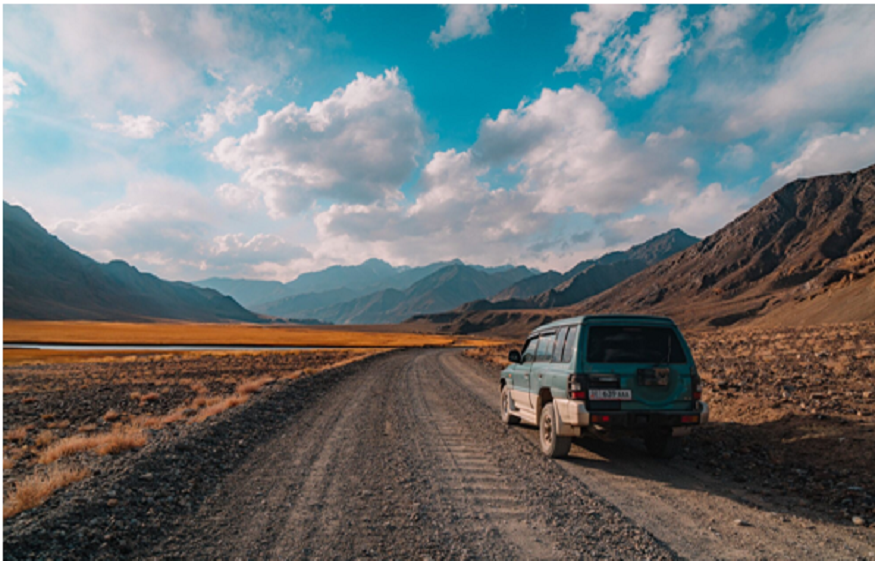How to plan a trip?
When planning a long trip , you can leave impromptu or plan your journey day by day. The majority of people who decide to take a traveling trip, whether to discover a country or for a world tour, do a long reconnaissance before departure. They map out their itinerary in advance, estimate the budget for their adventure in detail, evaluate the journeys, plan certain activities on fixed dates and decide on certain hotels, experiences or excursions in advance.
Indeed, I believe that the scouting and projection stage is an integral part of the adventure. Finding out about a destination, drawing lines on a world map, reading travel advice or learning a foreign language, all these moments are so exciting that you have to know how to savor them!
If you don’t know where to start planning your next getaway to the ends of the earth, here are some tips, tricks, tools and methods.
Planning an adventure is about estimating the path that will be traveled, the steps to be taken, but also the budget that will be spent. If you have no time or budget limits or any requirements, it is obvious that planning will be secondary and perhaps even useless. But few people travel in such conditions…
Some opt for summary planning by defining the broad outlines and key stages to leave as much room as possible for chance, others want ultra-detailed day-by-day planning.
Naturally organized people and experienced travelers will find it easier to stay on track while traveling and to keep track of their priorities, time and remaining budget. Conversely, more disorganized people or novices may feel overwhelmed by the range of possibilities once abroad and will need a framework to reassure themselves and keep their bearings.
It all depends on your constraints.
The longer the trip and the slower the pace allocated, the less precise the program will need to be because the itinerary will be flexible and will leave a lot of room for hazards (encounters, obstacles, detours, opportunities, etc.). On a long trip, however, it may be interesting to have a planning tool that can be updated over time. This will allow you to regularly sit down and think about the next steps based on the path taken, the remaining budget and your new objectives.
For a trip where timing is tight and demands are high (for example, when you want to see as many tourist sites as possible in a week in New York ), it is essential to create a precise schedule that will detail the program for each day, the times of certain activities and even, why not, the choice of restaurants! The goal of this planning will be above all to save time once you are there. This is what travel agencies do to allow tourists to visit as many things as possible in a minimum amount of time.
The benefits of planning
Planning an adventure is about estimating the path that will be traveled, the steps to be taken, but also the budget that will be spent. If you have no time or budget limits or requirements (things to see and do on site), it is obvious that planning is secondary. But few people travel in such conditions.
Here are the top three reasons to plan a trip:
Have benchmarks
The travel planner allows you to plan your trip. When you arrive on site, you know where you are going, you understand the distances and you do not lose your bearings because your objectives, constraints and limits will have been defined.
Master your budget
By planning ahead, you can find out about the cost of transportation, accommodation, activities, and conversion fees. This way, you can define your budget precisely so that you are not surprised when you get there. Once abroad, with fatigue and loss of bearings, it is easy to make mistakes and pay too much for certain services or miss out on good deals due to lack of preparation.
Reduce your stress
Planning a trip in advance can help you avoid unpleasant surprises, such as struggling to find last-minute accommodation or long lines for entrance tickets to tourist attractions. Plus, if you have your itinerary mapped out, you’ll never be completely lost, even without an internet connection.
Maximize your time
If you plan your trip well, you can maximize your time by tracking transportation options and schedules to major tourist sites and making sure you have enough time to explore each place you visit.
Don’t miss out
When traveling impromptu, I often missed events or places, simply through ignorance. I then learned too late about places that I would have loved to see. Preparing for the trip avoids this.
➜ But be careful, planning too rigidly is an extreme that can also backfire on you because by wanting to stick to a schedule too much, you could also miss out on fabulous unforeseen events. I recommend that you plan the broad outlines but not lock down every minute of your diary!













Post Comment
You must be logged in to post a comment.